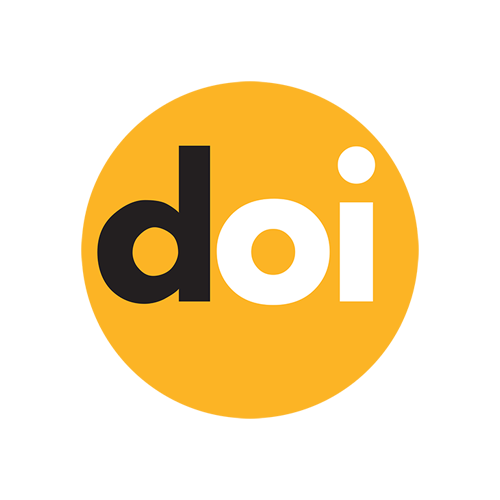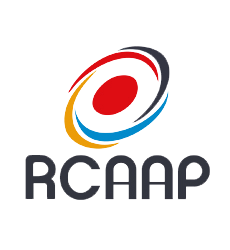Code of Conduct
Editorial Policies
The Editor and editorial board are responsible for publishing the manuscripts, ensuring their scientific quality and managing the publication within a reasonable time.
The editorial team is responsible for:
. Improve the quality of the journal from a scientific and graphic point of view;
. Contribute and encourage scientific debate;
. Encourage the publication of manuscripts and debate on emerging themes of international interest;
. Be impartial in managing the articles proposed for publication;
. Keep confidentiality about the received articles, as well as their content until their publication;
. Promote a democratic culture, guaranteeing the divergence of opinions and the possibility of criticism regarding the published works. However, the editors reserve the right to decide whether the criticisms presented are appropriate, substantiated and convincing.
Authorship
The authors are primarily responsible for their content and originality. Failure to comply with appropriate behavior may render the authorization for publication unfeasible. In case of co-authorship, all authors should have contributed to the publication. All authors should note the comments and corrections suggested by the reviewers.
Financing
If the research was publicly or privately funded, it should be mentioned in the conflict of interest statement.
Publication Ethics
IJFMA is committed to upholding the integrity of the academic record. IJFMA adheres to the international standards set in Wager E & Kleinert S (2011) Responsible research publication: international standards for authors. A position statement developed at the 2nd World Conference on Research Integrity, Singapore, July 22-24, 2010. Chapter 50 in: Mayer T & Steneck N (eds) Promoting Research Integrity in a Global Environment. Imperial College Press / World Scientific Publishing, Singapore (pp 309-16). (ISBN 978-981-4340-97-7).
Plagiarism
IJFMA take issues of copyright infringement, plagiarism or other breaches of best practice in publication seriously. We seek to protect the rights of our authors and we always investigate claims of plagiarism or misuse of published articles. Equally, we seek to protect the reputation of the journal against malpractice. Submitted articles may be checked with duplication-checking software. Where an article, for example, is found to have plagiarised other work or included third-party copyright material without permission or with insufficient acknowledgement, or where the authorship of the article is contested, we reserve the right to take action including, but not limited to: publishing an erratum or corrigendum (correction); retracting the article; taking up the matter with the head of department or dean of the author's institution and/or relevant academic bodies or societies; or taking appropriate legal action.
Prior Publication
The submission must be original, not previously published and not under consideration by other publication. If material has been previously published it is not generally acceptable for publication in IJFMA. However, there are certain circumstances where previously published material can be considered for publication. Please contact the Editor for further discussion.
All submission will be select by double blind peer review. Author’s name, profile, ranking and institutional affiliation should only be mentioned in the appropriate submission fields. Revised articles will also be treated confidentially until the date of their publication.
All authors give the IJFMA's wording the rights to index, in international networks, the published articles. The content of the texts and the opinions expressed therein, as well as the reference to figures or graphics already published, are the sole responsibility of the authors.
The favorable opinion of the reviewers does not imply the automatic publication of the articles. The immediate non-publication is related to IJFMA's editorial policy and the volume of articles submitted to IJFMA and positively evaluated. If the article is not published within one year, the author may submit it to other publications with prior information to IJFMA management.
The Editor’s final decision can be one of the 3 following categories: “Accept as is”, “Minor Revision”, ”Major Revision”, ”Decline”. If the article falls within the Revision (major or minor) categories, the authors are welcomed to re-submit a revised article within the following 3 months. Such revised article will usually be returned to initial referees for re-evaluation in a second round of review.
Claims
Whenever the authors consider it pertinent, they are entitled to submit their complaints to the publishers. The process will be addressed by letter to the editors. Publishers undertake to respond to all complaints submitted.
Conflicts of Interest
The Committee on Publication Ethics (COPE) states in its Guidelines on Good Publication Practice (2003) that:
‘Conflicts of interest arise when authors, reviewers, or editors have interests that are not fully apparent and that may influence their judgments on what is published.’
Conflict of interest may arise when academic and professional friendships exist with members of the editorial team. In this situation, members of the editorial team safeguard the conflict of interest by submitting the review of the articles to external reviewers, following the above process (blind assessment). The anonymity of the author and the evaluator will avoid any favors. Impartiality and intellectual independence are a right that should be guaranteed in publishing.
Data Protection
Protecting the confidentiality of individual information is a guarantee of commitment by the Editors. The Editors will demand from the authors of the empirical research articles the guarantee of the same procedure and that the research subjects have expressed their written consent to participate in the research. This problem does not arise when it is understood that empirical research articles, even without the consent of the research subjects, do not harm the dignity of the subjects involved.
Copyright Notice
Authors who publish with this journal agree to the following terms:
a) Authors retain copyright and grant the journal right of first publication with the work simultaneously licensed under a Creative Commons Attribution License that allows others to share the work with an acknowledgement of the work's authorship and initial publication in this journal. Read more at http://creativecommons.org/licenses/by-nc-sa/4.0.
b) Authors are able to enter into separate, additional contractual arrangements for the non-exclusive distribution of the journal's published version of the work (e.g., post it to an institutional repository or publish it in a book), with an acknowledgement of its initial publication in this journal.
c) IJFMA is run and subsidised by the Film and Media Arts Department of Universidade Lusófona de Humanidades e Tecnologias, Lisbon, Portugal. Authors are not requested submission or processing fees. Under open access politics, articles are fully available upon publication. Authors are permitted and encouraged to post their work online (e.g., in institutional repositories or on their website) prior to and during the submission process, as it can lead to productive exchanges, as well as earlier and greater citation of published work (See The Effect of Open Access).










